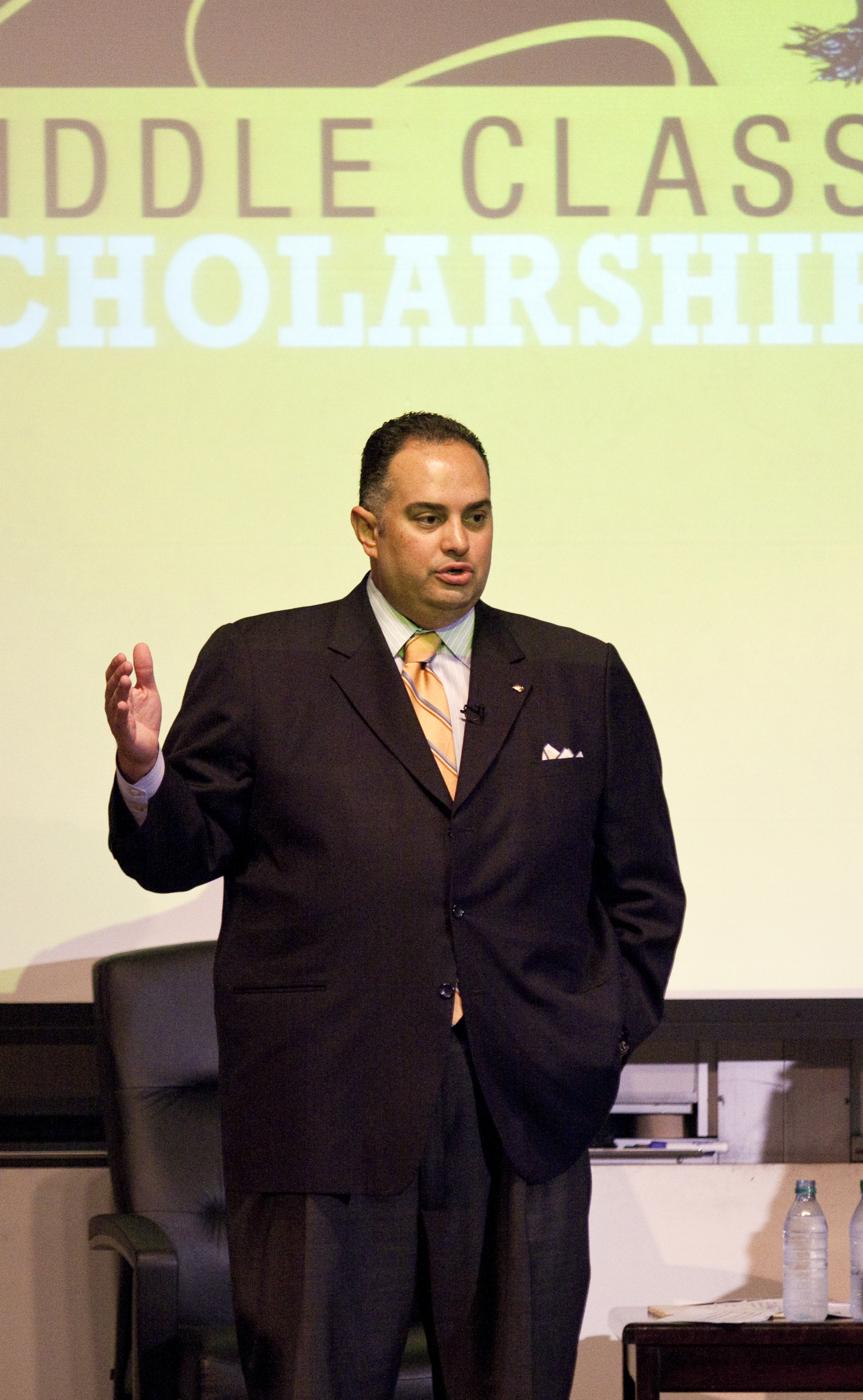State legislation to create a scholarship for middle-income college students has stirred up opposition from large corporations in recent weeks.
The act, which was co-authored by Speaker of the California Assembly John Perez (D-Los Angeles), would raise corporate taxes on companies and direct the money toward a middle-class scholarship program.
Several companies, including Chrysler, General Motors, International Paper, Kimberly-Clarke and Procter & Gamble, recently formed a coalition to oppose the legislation. The coalition, California Employers Against Higher Taxes, argues that the act could lead to fewer jobs in California, because companies will have less incentive to operate in the state, said Peter DeMarco, spokesman for the coalition.
On Friday, Perez and assemblywoman Holly Mitchell (D-Los Angeles) visited UCLA discuss the Middle Class Scholarship Act with students as part of a panel discussion hosted by the UCLA Community Programs office and the Undergraduate Students Association Council’s External Vice President’s office.
“Students are faced with historic amounts of debt, and this is the greatest opportunity we have to make a real effort in changing that,” Perez said during the panel discussion.
He acknowledged the opposition from companies at the event, saying that the companies should recognize the legislation as an investment in the future.
The Middle Class Scholarship Act, which was introduced in February, would be created through two bills ““ AB 1500 and AB 1501.
AB 1500 would raise corporate taxes on companies operating in multiple states by eliminating a part of a 2009 budget deal that allows corporations to choose a more favorable formula for calculating their taxes.
The tax law was put in place at the height of the recession in 2009 by a bipartisan vote by the legislature, said DeMarco, who attended the panel. As the law just recently went into effect, the companies have not yet seen the impact of the law, he said.
The second component of the act, AB 1501, would establish the Middle Class Scholarship Program and allocate the money saved from AB 1500 to the program.
The act is projected to generate $1 billion in revenue, $150 million of which will be distributed the California Community College System and the remainder to the UC and CSU, Perez said.
Proponents of the legislation anticipate the act will reduce tuition fees by two-thirds for families making less than $150,000 a year in the University of California, California State University, and some community college systems. The act is expected to impact about 42,000 UC students, said Ronald Johnson, director of financial aid at UCLA.
If passed, the act would not change the funding going into the UC system, but the amount of tuition students would have covered by the university, said Judy Heiman, principal analyst for the California Legislative Analyst’s Office.
The legislation requires the UC to continue paying the same percentage of tuition for middle-class students who qualify for the scholarship regardless of any future tuition rises, Heiman said.
She added that this could become a constraint on the UC.
“This could potentially become difficult for the UC because as tuition (might) rise, the two-thirds proportion of (tuition) they will have to pay for students who qualify for the Middle Class Scholarship will also rise,” Heiman said.
DeMarco also said the multi-state corporations involved may have less incentive to stay in California if the bill passes, which could reduce the number of middle-class jobs for Californians.
“We want students going to school in California to be able to stay in California, not have to go out of state to look for jobs because of an anti-business climate in Sacramento,” DeMarco said. “Jobs are the most important thing for students when they graduate. This bill does not deliver that promise.”
Johnson, however, said he anticipates the state to benefit from the act, in the scenario where students who graduate with less of a debt burden can find jobs and remain in California.
“I seriously doubt that corporations who are here would leave after having to pay a slightly higher tax,” Johnson said.
He added that he hopes the funding source is permanent and reliable rather than distributed on an appropriation basis, which he said could potentially undermine existing scholarship programs.
Joelle Gamble, external vice president of USAC, said she sees this act as an immediate, rather than long-term, solution to the problem of college affordability.
“This is one good step in that direction, but it’s not the overall solution,” she said.
At the event, Perez said he is relatively confident the act will pass in the assembly, but thinks it will be more of an “uphill battle” in the Senate.
And Johnson said the state’s economic instability may make it harder to pass the proposed legislation.
Both bills will be reviewed by Assembly committees in early May, said Max Espinoza, who serves on Perez’s staff. The bills would then be submitted to the Assembly Appropriations Committee and passed by the Assembly and Senate in the summer.
Both must pass in order to take effect, Espinoza said.
